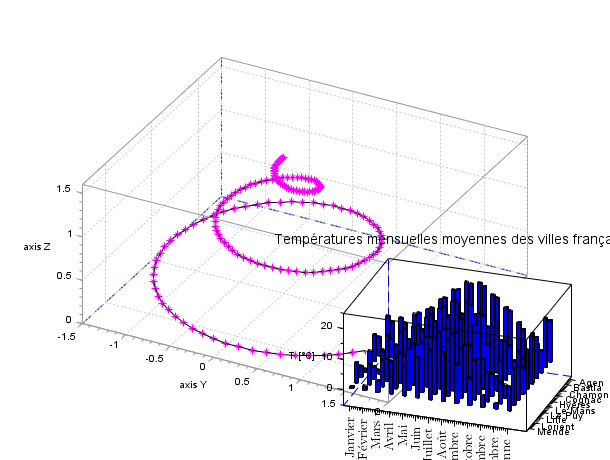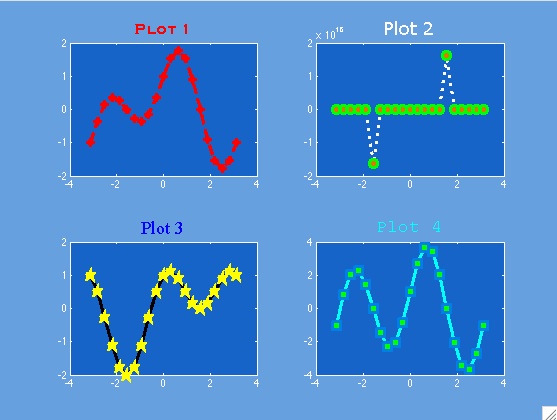

text ( 0.5, # x-Koordinate, 0 ganz links, 1 ganz rechts 0.5, # y-Koordinate, 0 ganz oben, 1 ganz unten 'ax', # der Text der ausgegeben wird horizontalalignment = 'center', # abgekürzt 'ha' verticalalignment = 'center', # abgekürzt 'va' fontsize = 20, alpha =. subplots ( 2, 2, figsize = ( 6, 4 ), facecolor = python_course_green_light ) ax. Import matplotlib.pyplot as plt python_course_green = "#476042" python_course_orange = "#f17c0b" python_course_green_light = "#6a9662" #plt.figure(figsize=(6, 4)) fig, ax = plt.

In the previous chapters of our tutorial, we saw already the simple case of creating one figure and one axes. pyplot.figure keyword that sets the figure number or label.ĭict with keywords passed to the ~_subplot call used to create each subplot.ĭict with keywords passed to the ~ constructor used to create the grid the subplots are placed on.Īll additional keyword arguments are passed to the. Integer or string, optional, default: NoneĪ. If squeeze is set to True, extra dimensions are squeezed out from the returned Axes object Similarly, when subplots have a shared y-axis along a row, only the y tick labels of the first column subplot are created. When subplots have a shared x-axis along a column, only the x tick labels of the bottom subplot are created. If it is set to col, each subplot column will share an x-axis. If it is set to row, each subplot row will share an x-axis. If sharex is set to False or none, each x-axis of a subplot will be independent. Number of rows/columns of the subplot grid.īool or, default: FalseĬontrols sharing of properties among x ( sharex) axis: If sharex is set to True or all, the x-axis will be shared among all subplots. Subplots(nrows=1, ncols=1, sharex=False, sharey=False, squeeze=True, subplot_kw=None, gridspec_kw=None, **fig_kw) Parameter If we call this function without any parameters - like we do in the following example - a Figure object and one Axes object will be returned:įigure(432x288) AxesSubplot(0.125,0.125 0.775x0.755) This function returns a figure and an Axes object or an array of Axes objects. It is a wrapper function to make it convenient to create common layouts of subplots, including the enclosing figure object, in a single call. The function subplot create a figure and a set of subplots. We will demonstrate in our examples how this can be accomplished with the funtion subplots. The idea is to have more than one graph in one window and each graph appears in its own subplot. The more interesting case is, if you want two plots beside of each other for example. This is not a problem, because it will be enough to put the two plots in your scripts, as we have seen before. In the simplest case this might mean, that you have one curve and you want another curve printed over it.
#Subplot example how to#
A frequently asked question is how to have multiple plots in one graph? We have given so far lots of examples for plotting graphs in the previous chapters of our Python tutorial on Matplotlib.

Net Income Method Example with Numpy, Matplotlib and Scipy.Expenses and income example with Pandas and Python.Accessing and Changing values of DataFrames.Image Processing Techniques with Python and Matplotlib.Image Processing in Python with Matplotlib.Adding Legends and Annotations in Matplotlib.Reading and Writing Data Files: ndarrays.Matrix Arithmetics under NumPy and Python.Numpy Arrays: Concatenating, Flattening and Adding Dimensions.Instructor-led training courses by Bernd Klein Suppose we have the following pandas DataFrame: import pandas as pdĭf = pd.Live Python classes by highly experienced instructors: The following example shows how to use this syntax in practice. boxplot(data=df, x=' team', y=' assists', ax=axes) boxplot(data=df, x=' team', y=' points', ax=axes) You can use the following basic syntax to create subplots in the seaborn data visualization library in Python: #define dimensions of subplots (rows, columns)


 0 kommentar(er)
0 kommentar(er)
